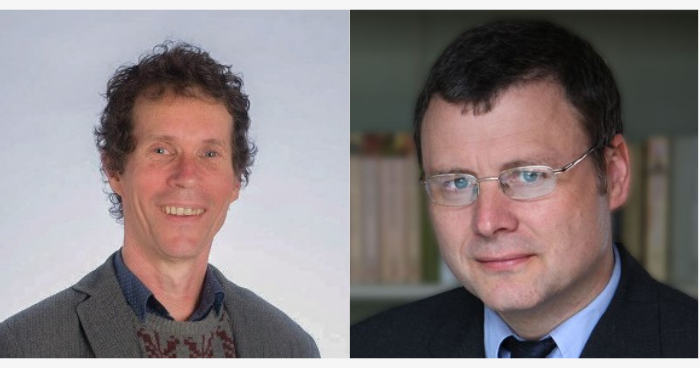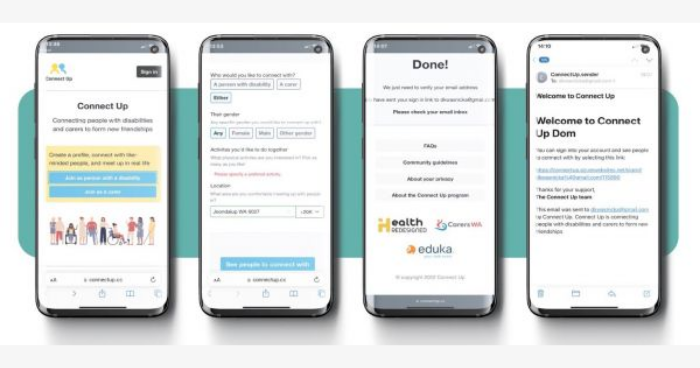New online tool to connect Australians with disabilities and carers
University of Melbourne researchers are seeking to foster community connections and enhance the well-being of Australians with disabilities and their carers through the scale-up of a new online program called ConnectUp.
In an initiative funded by the National Health and Medical Research Council’s Medical Research Future Fund, Faculty of Engineering and Information Technology researchers are collaborating with a team led by Associate Professor Dominika Kwasnicka from the Melbourne School of Population and Global Health to develop the consumer-led and co-designed online platform. ConnectUp will enable users to connect online with people in nearby locations, encouraging them to plan and engage in physical activity in real life.

Dr Greg Wadley and Professor Richard Sinnott.
Dr Greg Wadley and Professor Richard Sinnott from the School of Computing and Information Systems are Chief Investigators on the project. Dr Wadley focuses on user-centred design and evaluation, while Professor Sinnott and his team within the Melbourne eResearch Group (MeG) are engineering and developing the ConnectUp platform.
This initiative has secured a $1 million grant to develop a platform that could benefit over 4.4 million Australians and 2.65 million unpaid carers. It will provide a space for shared experiences, recommendations and collaborative planning of physical activities.
Working with Carers Australia, Carers WA and a consortium of academic research partners including the University of Melbourne, Curtin University, Deakin University, La Trobe University, Macquarie University and the University of Sydney, along with healthcare research partner Ramsay Health Care and the Australian Citizen Science Association, the team is set to help consumers engage with this innovative digital technology.
As the platform evolves, it will include a feature to make recommendations to local authorities and policymakers, based on the shared experiences of users, contributing to the development of more inclusive and accessible spaces in Australia.
A prototype of the platform will be developed in the first year and trialled with community members during years two and three, with a broader rollout afterwards. The project is expected to begin in the middle of 2024.
This collaboration emerged from Dr Wadley’s affiliation with NHMRC’s Centre of Research Excellence in Digital Technology to Transform Chronic Disease Outcomes, which is a five-year project aimed at leveraging emerging digital technology to support population health.
Dr Wadley and Professor Sinnott have been involved in multiple projects where technologists partner with health researchers to develop digital health platforms. Other projects include Music Attuned Technology Care eHealth (MATCH): A Music Based Mobile eHealth Solution to Support Care of People With Dementia, which is developing and delivering a new consumer-centred music program for use with people living with dementia in the community and residential aged care, Environmental Determinants of Islet Autoimmunity (ENDIA), which is exploring the environment triggers for onset of type-1 diabetes, and the MOST online mental health service offered by Orygen Youth Health. More details of the work of Professor Sinnott and his team are available on the MeG website.